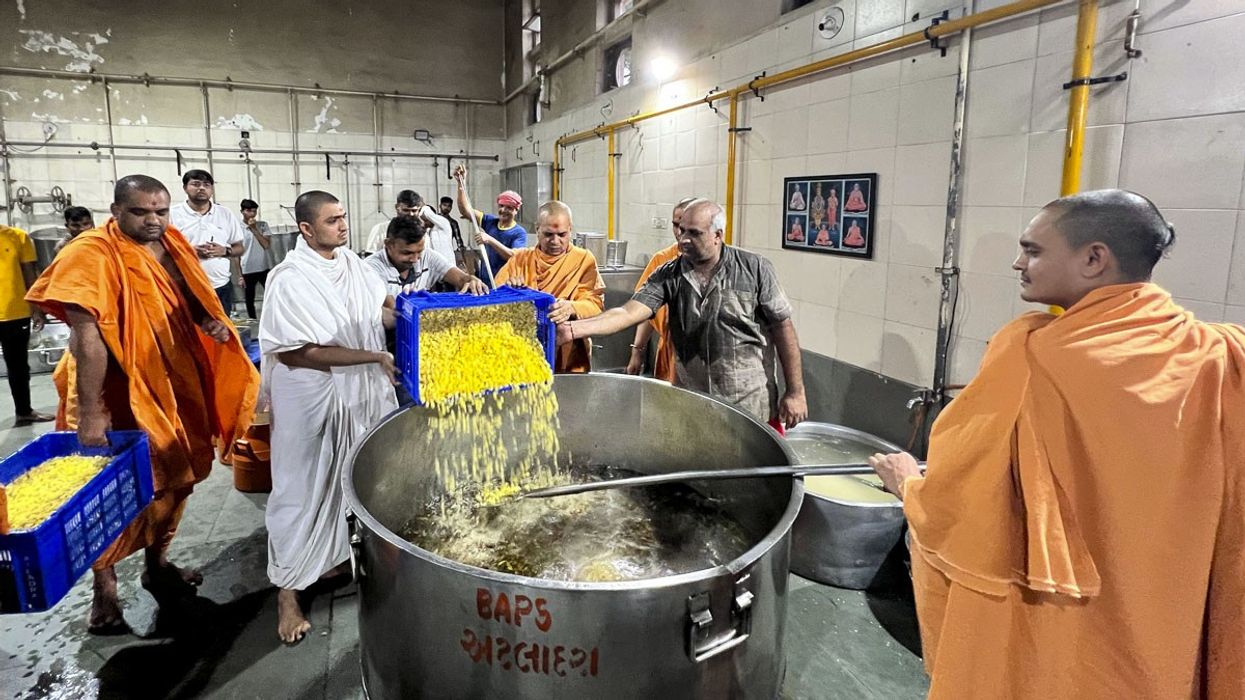HEAVY seasonal rains have caused severe flooding in Gujarat, stranding thousands in Vadodara and Jamnagar.
In response to the crisis, volunteers from BAPS Swaminarayan Sanstha, under the guidance of His Holiness Mahant Swami Maharaj, are working alongside local authorities to provide emergency assistance.
In Vadodara, BAPS volunteers have distributed significant quantities of food, including hot khichdi to 60,000 people, hot shiro to 25,000, and over 50,000 food packets containing sev, bundi, biscuits, and drinking water.
Meanwhile, in Jamnagar, BAPS prepared 5,000 food packets. Of these, 2,000 were distributed directly by volunteers, and 3,000 were handed to local government authorities for further distribution, a statement said
The flooding has also resulted in additional fatalities, with three more people reported dead overnight, raising the death toll to 31 this week. Authorities have evacuated over 8,700 individuals from ten districts in the past 24 hours due to severe waterlogging, particularly in Kutch district.
Amit Arora, district collector of Kutch, said, “We have evacuated people from coastal areas and relocated them to schools and other facilities to ensure their safety.”





